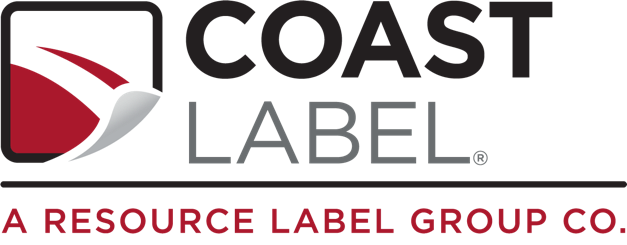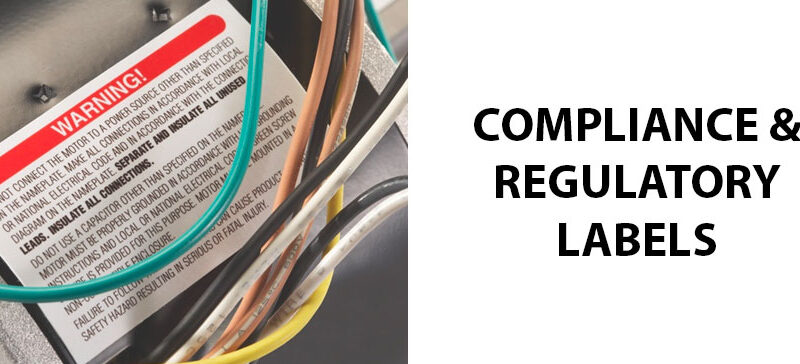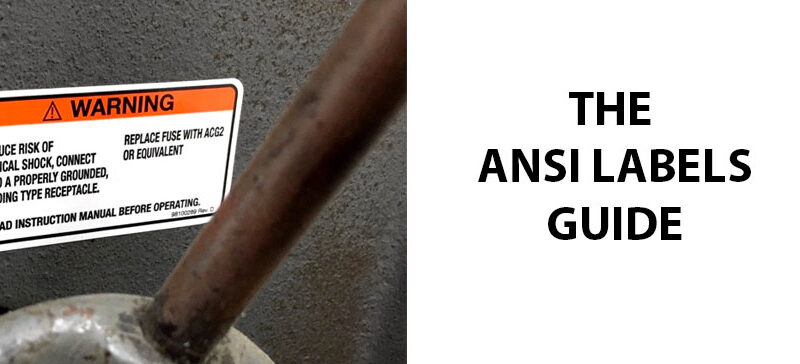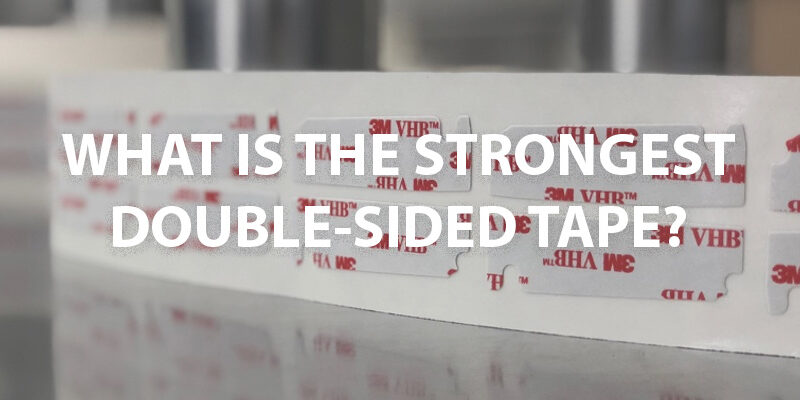From manufacturing to food and beverage, regulatory labels are used to keep consumers safe from harm. But depending on the industry you’re in, you’ll find that these regulations differ vastly. You may even be wondering if you need to use regulatory labels.
If you’re looking for more information about regulatory and compliance labels, you’re in the right place. In this blog post, we’ll talk about what these labels are used for, different types of compliance and regulatory labels, and how to know if you need them.
What Are Regulatory Labels Used for?
Regulatory labels are labels that are required by law or regulation. There are a number of different types of regulatory labels, and each type has its own specific labeling standards. One of the main uses of regulatory labels is to promote consumer safety. Some regulatory labels provide information about safe use, while others include ingredient lists and allergen information.
In addition to enhancing consumer safety, regulatory labels also help mitigate legal and financial risks for your company. By demonstrating your compliance to laws and regulations pertinent to your industry, you avoid lawsuits, fines, and other financial consequences of non-compliance.
Finally, regulatory labels help with supply chain management. Products that are well-labeled are easier to track through the supply chain. Should a recall be necessary, your company can pinpoint the exact batch that needs to be recalled and take swift action.
What Are Compliance Labels Used for?
While compliance labels are similar to regulatory labels, they are not necessarily the same. Compliance labels can include regulatory labels, but their scope is much broader. In addition to demonstrating compliance with regulations, compliance labels can also be used to show that a product or package follows industry standards or internal policies. Compliance labels can include certifications and quality assurance, whereas regulatory labels are only for legal requirements.
Some common uses of compliance labels include:
- Regulatory compliance: These labels ensure that products meet legal requirements, including safety, environmental, and labeling requirements.
- Industry standards: Many industries have their own standards and guidelines for quality, safety, and interoperability. Compliance labels indicate that the product conforms to these industry standards.
- Certifications: Compliance labels often signify that a product has obtained certifications from an independent organization, such as UL or CSA. These certifications may cover quality, environmental sustainability, ethical sourcing, or safety standards. This type of compliance label boosts consumer confidence and trust in your product.
- Internal policies: Companies may use compliance labels to ensure their products adhere to internal policies, such as quality control measures, internal safety protocols, or corporate sustainability initiatives.
- Supply chain transparency: In industries where traceability and accountability are critical, compliance labels are often used to provide information about the origin, manufacturing processes, or contents of a product. This promotes transparency throughout the supply chain.
Types of Regulatory and Compliance Labels
Regulatory and compliance labels are used across a wide variety of industries and sectors, so there are many different types. Each kind has its own very specific set of standards to follow. Here are some of most common the types of compliance and regulatory labels:
- UL: UL labels are compliance labels that prove that your product has been tested and certified by UL (Underwriter’s Laboratory). UL is an independent organization that develops safety standards for products. While UL certification is not mandatory by law, it demonstrates your company’s commitment to safety and quality. UL certification is typically for products sold within the United States.
- CE: CE labels are similar to UL labels, but for products that will be sold in the European market. CE labels are required for certain products, such as electronics, machinery, electrical equipment, PPE, and more. Because CE marks are required, they are considered regulatory labels.
- CSA: CSA, or Canadian Standards Association, labels are used to demonstrate compliance with CSA group standards. Unlike CE labels, CSA labels are not mandatory. However, these compliance labels can help you distinguish your product within the Canadian market.
- ANSI: ANSI, or the American National Standards Institute, is a third-party organization that coordinates and publishes safety standards. ANSI safety labels are used to warn of possible hazards and communicate safe usage of equipment. Using these compliance labels helps create a safer workplace and inform consumers of important safety information.
- Prop 65: Proposition 65 is a California law designed to protect the state’s drinking water sources from chemicals known to cause cancer, birth defects, or reproductive harm, and to inform citizens about exposure to these chemicals. Prop 65 labels are required for products being sold in California that contain these chemicals.
- Chemical/GHS: In the United States, chemicals and hazardous materials must be labeled according to OSHA’s Hazard Communication Standards, which are aligned with the Globally Harmonized System of Classification and Labeling of Chemicals (GHS). These regulatory labels ensure the safe handling, transportation, and use of hazardous substances.
- FDA: The Food and Drug Administration, or FDA, regulates a wide range of products, including food, drugs, medical products, cosmetics, dietary supplements, and tobacco products. As part of their regulations, these products must include FDA labels. The required components differ based on the product. For example, foods and drinks require an ingredients list, nutrition facts panel, allergen information, and expiration date.
Some other types of compliance and regulatory labels include:
- Pharmaceutical labels
- Electronics labels
- Medical device labels
- Textile labels
- Automotive labels
- Country of origin labels
What Product Labeling Requirements and Regulations Must They Meet?
The exact requirements and regulations compliance labels must meet differ based on the industry, type of product, and region or country where the product is being sold. You’ll need to research the specific requirements and regulations based on your product and geographic location. Here are some of the main aspects regulatory labels may need to include, depending on the type of product:
- Safety information
- Ingredient disclosure
- Nutrition information
- Allergen information
- Expiration date
- Batch date
- Country of origin
- Usage instruction
- Warnings and precautions
- Environmental impact
- Certifications and standards
Another main component of compliance labels is the quality of the materials. Most regulatory labels need to be made from industrial strength materials that will last for the lifetime of the product. Chemical labels, for example, must be able to withstand chemical exposure. Typically, you’ll also need to consider factors such as size, legibility, and placement of your regulatory labels.
How to Know When You Need to Use Them
There are tons of different types of regulatory labels, so how do you know when you need to use them? Whatever product you’re manufacturing or selling, you’ll need to research the specific industry standards that apply. This will involve consulting with industry associations, regulatory agencies, trade publications, or legal resources that are relevant to your industry. These associations usually have resources you can rely on to answer your questions.
Once you know what type of regulatory labels you need, you’ll need to stay up-to-date with changes to regulations that affect your product to avoid fines or legal consequences. You’ll also want to regularly audit your product labeling and compliance practices to ensure your ongoing compliance.
If you’re looking for a custom labeling manufacturer who can handle your specific regulatory label needs, Coast Label can help. We’ve got years of experience manufacturing regulatory and compliance labels. We’ll help you design compliance labels with industrial-strength materials that will last. Contact us today for a proposal!



